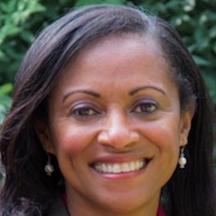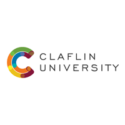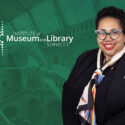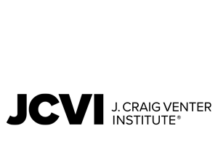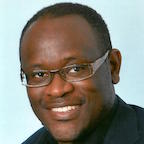 Edwin Fohtung, an assistant professor of physics at New Mexico State University, was named the 2015 Rosen Scholar by the Los Alamos National Laboratory. The designation comes with $150,000 in grant money to fund Dr. Fohtung’s research.
Edwin Fohtung, an assistant professor of physics at New Mexico State University, was named the 2015 Rosen Scholar by the Los Alamos National Laboratory. The designation comes with $150,000 in grant money to fund Dr. Fohtung’s research.
The fellowship was created to honor Louis Rosen, who had a 60-year career at Los Alamos. Dr. Rosen began working at Los Alamos on the Manhattan Project to develop the atomic bomb in 1943. He was a driving force behind the establishment of what is now the Los Alamos Neutron Science Center. Dr. Rosen died in 2009.
Dr. Fohtung earned his bachelor’s and master’s degree from the institute of physics, nanotechnology and telecommunication of the St. Petersburg State Polytechnic University in Russia, and his Ph.D. from University of Freiburg in Germany.

